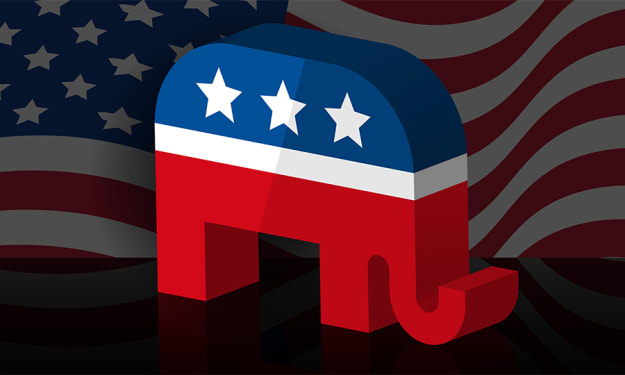Apparent Growth in Ill-Health—Is This a Political Issue?
Does more health care equate with more ill-health?

The social media is an outlet for numerous conspiracy theories. Some are about our state of health and what can be causing ill health. In the domestic politics of many nations, health care is a major debating position, showing its importance to individuals and to the governments of nations.
We now have a vast world wide pharmaceutical industry, one that needs ill-health to exist so that it can charge vast amounts of money to cure things. Whilst the deal talks about prevention of ill-health, the pharmaceutical industry needs people to get ill, so it can sell relief from illness. Every nation has some form of health care industry and so the concept that people should be responsible for their own individual health and wellbeing, has been diminished, if not eradicated. In Britain and as far as I can understand, all of Europe and the America, it has become an accepted idea that the state should be involved in health care. Political parties increase their approval in opinion polls, if they advocate more and more tax spending on health care, more and more control over the nations health. The British NHS is a genuinely great idea, which saves lives and reduces pain in millions of people, but it has its limitations and the politicians need to recognise that simply giving more and more tax money to such an organisation, will not reduce the nations over all health care costs, or improve the general levels of fitness within the populous.
If the media content is to be believed, those of us in what are claimed to be “developed” nations, are obsessed with our health. Government's lavish vast amounts of tax money on health issues, but everyday there are public demands that this or that aspect of health is given more attention. In Britain with relatively low cost (at point of delivery) health care, we seem to be obsessed with ill health. Being too fat or even being over weight, becomes a cause for concern. If we are in any sort of discomfort we seek medical attention. Even perfectly natural events such as becoming old, or become pregnant, is now a medical condition. If the media is to be believed even being tired, or liking an alcoholic drink, is a worry and as for indulging in the slightest risk, we should all be rushing to medical professionals for advice and admonition. It is almost masochistic.
In the past, when health care was relatively unscientific, people used folk remedies and followed local family advice on how to stay capable of work. Since that time statistically, the average length of life expectancy has grown longer; but statistics do not explain why. May be the absence of large numbers of deaths due to war, has brought up the average. What is the life expectancy in places still being so dreadfully damaged by war? Infant mortality has improved, but in Britain anyway, the birth rate for indigenous people is falling. May be less babies means better nurture for the ones we have and so greater survival rates? It is probable that the drop in numbers of infant deaths, is due to better nutrition which has improved because of economic factors, not medical ones. There is the medical advance in the immunisation programs, This does not explain the rise in obesity and the constant demands that we, the people, change our lifestyles and diets, to prevent becoming ill.
What has changed over the last 100 years is the food we eat and the liquids we consume. In the past the notion of organic food was never raised since all food was grown naturally. The word organic simply means: Derived from living plants and animals, which is why people seeking chemical free food, need to be cautious about some claims the produce is organic. Pre-made ready to eat food was very rare. Some urban communities had pie shops and most established communities had a baker, but even then, with no motorised transport, if you lived five miles from a village, you probably baked your own bread.
The advent of the supermarket changed this. In Britain, the first self service shop opened in 1948, the first supermarket about 1951, but these were in London and did not become wide spread for several years. Supermarkets largest difference from the old style individual shops, is the way things are sold pre-packed in ready identified amounts. The old shops weighed each persons individual choice and bagged it for that customer. Even health conscious people now consume quite a lot of factory produced and packaged foods. The shelves are stacked with ready meals, some even claiming to be health products. All are mass produced and all have some form of preserving additives, to ensure they can be sold before they deteriorate. The effect of these additives is, despite all the food safety claims, unknown. It is not possible to test the various combinations of additives which are ingested by a person who is also taking a variety of medications and has any specific diet. The variables are too great for experimental testing. Only time will tell. Whether “time” will be allowed to publish the results is in great doubt.
Even spices are sold as ready mixed concoctions to make life quicker and easier for the cook. Quicker and easier are not necessarily better, but that is not the way we are conditioned to see things. In our modern world expediency is the master. Very clever marketing has made instant, fast, simple, easy; all become synonymous with good.
Is there a correlation between the consumption of factory produced food and the increase in worry about health? This seems to be the case, but it is very difficult to know for certain. We do not know, how the majority of ordinary people felt about their health care, one hundred years ago. They had many more things to worry about and from my memories of my own mother she was far more stoical about aches and pains that most of us are now. Certainly the media attention would seem to indicate there is far greater reason to be concerned over health, than previously.
Do we all worry too much about conditions that our ancestors would have just accepted and ignored? Again this is hard to make a value judgement about, since we do not know what conditions our ancestors worried about. It appears that many of the issues, about mental ill health in old age, which are now more common, are because more people are living to an older age. This fact may also be due to improvisation in the economic state of the majority of people, rather than any medical advance. There is also the fact that in our modern times every condition, every possible variation from a fluctuating “normal” is given a medical label and then money is demanded to find and effect a cure for this labelled condition. Our ancestors just accepted that people were different, people sometimes behaved differently, they recognised that not everyone was from the same mould. They did not seek to cure the person of being different. This change may be partly because we live in such an over populated era. What could be accommodated in smaller communities becomes more problematic in more densely crowded ones. It is also possible that no one made money out of attaching labels and finding treatments, to get a person unlabelled.
Do the majority of the people in any nation, actually concern themselves with health as much as the media and the politicians seem to imagine? We can only use vague generalities for this, young people generally and naturally, have less concern over their mortality than those over 60. It is quite possible that the marketing and media emphasis on health, causes people to have concerns that they may not have had without this marketing. Ignorance is bliss. Not every arthritic ache and pain is a sign of impending doom.
Why do the medical establishment get so uptight about natural medicine and people who actually try to improve their health without paying doctors or pharmaceutical conglomerates? This is a question where the answer is self evident. The medical establishment is dependent on the the money from large pharmaceutical companies and so they strive to preserve the situation where people make themselves ill and pay drug companies, via their agents, to make them less ill again. The idea of non chemical intervention, controlled by the individual themselves, is abhorrent to their pay packets. The political lobbying of these giant medical companies also ensures the political parties and their publicity machines, will do everything they can to marginalise all but big business health care.
About the Creator
Peter Rose
Collections of "my" vocal essays with additions, are available as printed books ASIN 197680615 and 1980878536 also some fictional works and some e books available at Amazon;-
amazon.com/author/healthandfunpeterrose
.






Comments
There are no comments for this story
Be the first to respond and start the conversation.